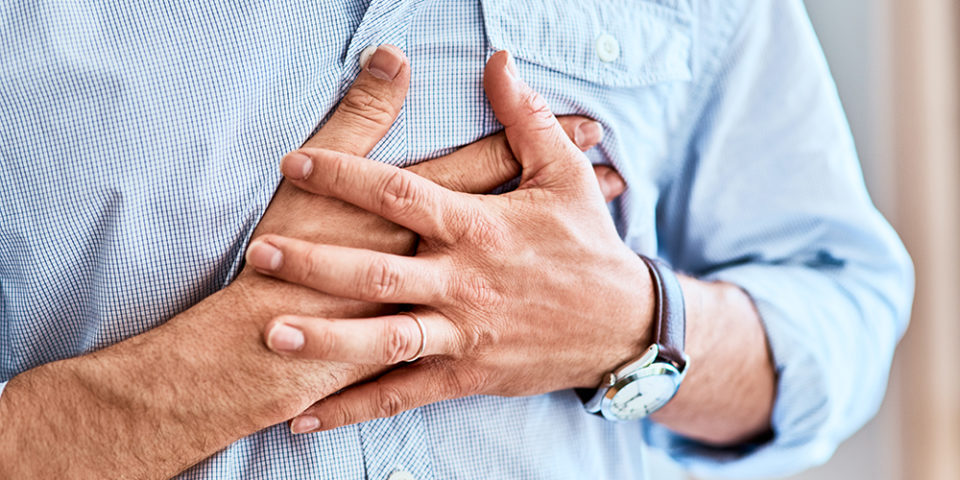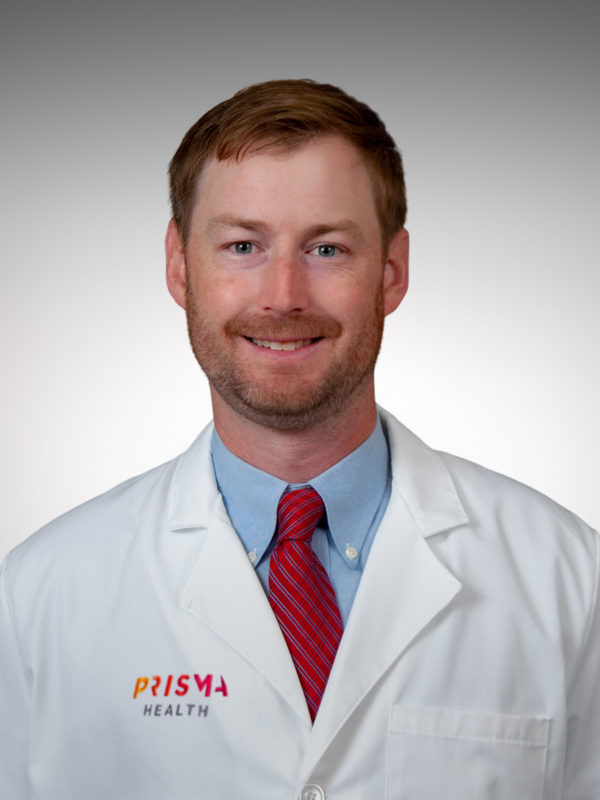Chest pain and what it could mean
Pain in your chest is not something to ignore. But how do you know if it is something serious – like a heart attack – or if it is just heartburn? Cardiologist Brad Stevens, Jr. MD, explained what your chest pain could mean.
“Chest pain is a broad topic from a medical standpoint. It could be a number of things, but figuring out the cause is very important because you need to know for further diagnosis and treatment,” said Dr. Stevens.
Reasons for non-heart related chest pain could include:
- Aortic (tear in vessel, bulge in aorta)
- Esophageal/gastrointestinal (spasm, tear, peptic ulcer)
- Lungs (pulmonary embolism)
- Musculo-skeletal (rheumatoid arthritis, fibromyalgia)
- Neurological (prolapsed disc, pinched nerve)
- Psychological/other (anxiety, panic attack, cocaine abuse)
How do you know if your chest pain is acid reflux?
Dr. Stevens said gastroesophageal reflux disease (GERD), or acid reflux, is the most common cause of noncardiac chest pain. Your lower esophageal sphincter (LES) normally opens to allow food and beverages into your stomach. With GERD, the LES closes to stop food and stomach acid gets into your esophagus. The LES may also be weak or too relaxed. This causes discomfort in the esophagus that can mimic chest pain.
Risk factors for GERD include:
- Being overweight
- Pregnancy
- Diseases delaying emptying of the stomach
- Connective tissue or rheumatological diseases
- Hiatal hernia
Lifestyle factors that can increase your risk of developing GERD include:
- Smoking
- Certain foods and drinks
- Large meals
- Eating too soon before bed
- Certain medications
Dr. Stevens said GERD can be controlled by watching what you eat and knowing your trigger foods. “Some foods that can increase reflux are coffee, wine, soft drinks, chocolate, onion, tomatoes and peppermint. Some individuals can combat their reflux by taking medication 30 or so minutes before eating those types of foods.”
How do you know if your chest pain is heart related?
Heart disease occurs when plaque has built up in your arteries, limiting oxygen to the heart muscles. The plaque buildup limits blood flow to the heart muscle and causes pain. “That plaque can also rupture, causing a heart attack,” said Dr. Stevens.
Risk factors for developing heart disease include:
- Age
- Diabetes
- Smoking
- Hypertension
- Dyslipidemia (elevated cholesterol or fats in the blood)
- Obesity
- Lack of exercise
- Family history
Symptoms of heart disease include:
- Chest discomfort
- Pain in the neck, jaw, arms, back or stomach
- Shortness of breath
- Sweating
- Nausea
- Weakness or fatigue
- Lightheadedness
“Some people experience more severe symptoms. For others it may not be pain that is experienced, but discomfort,” said Dr. Stevens.
How is heart related chest pain diagnosed?
“Your doctor will ask you questions about your medical history and about what happens when you experience chest pain. There will also be a physical exam, blood work, an electrocardiogram (EKG) and stress testing,” said Dr. Stevens. “All of these tests will help your doctor determine if the chest pain you are experiencing is related to your heart. If it is, treatment and management options will be discussed.”
If you are experiencing chest pain, talk to your doctor. If you are experiencing heart attack symptoms, call 911 or go to the emergency room right away. “It is important to know and understand that chest pain is very common, but it isn’t something that should be ignored if you aren’t sure of the cause,” said Dr. Stevens.
Find a cardiologist you trust
We make it easier to get the care your heart needs, with cardiologists located near you.
Learn More

